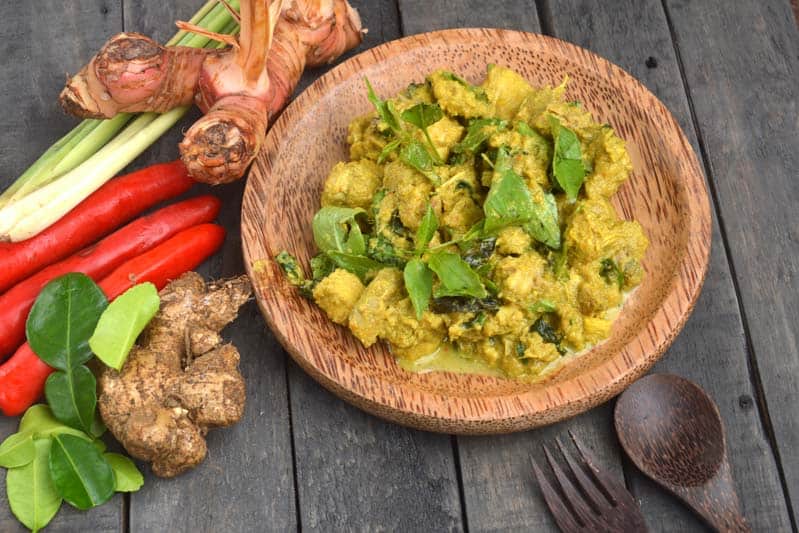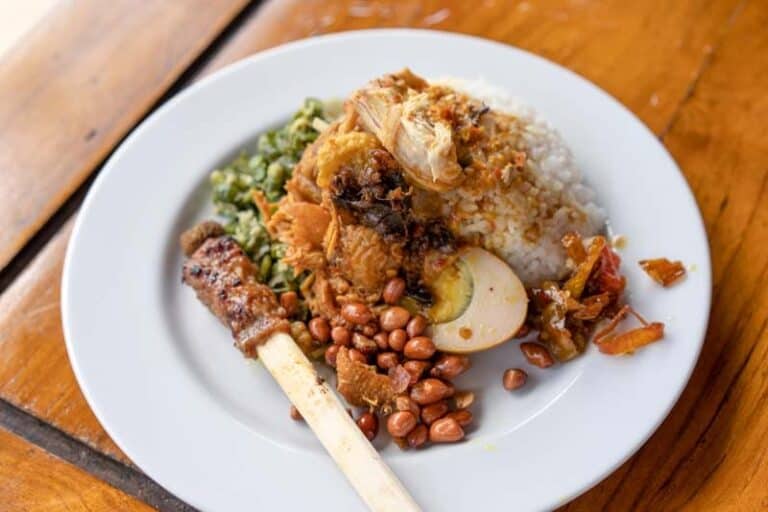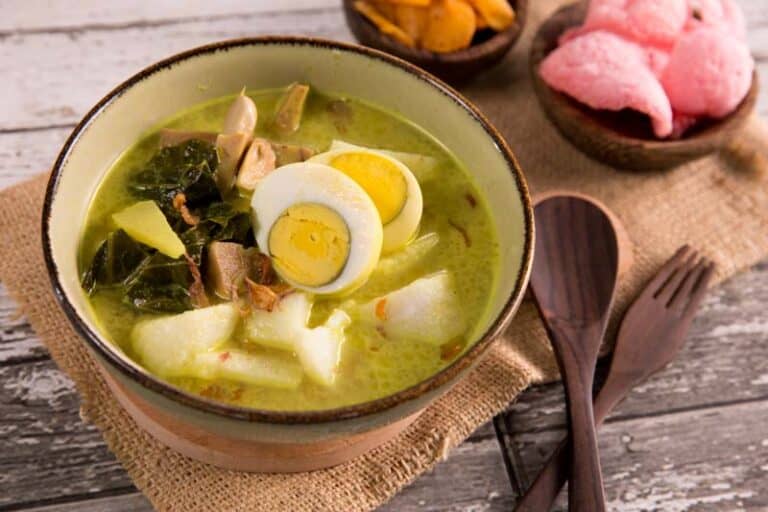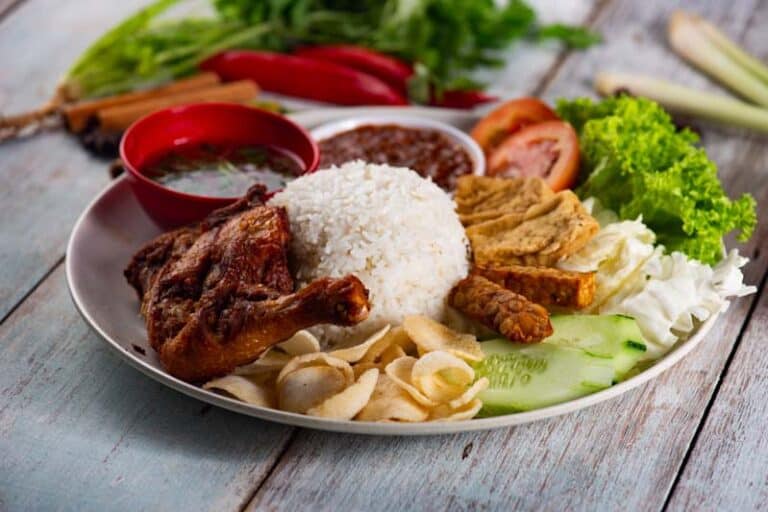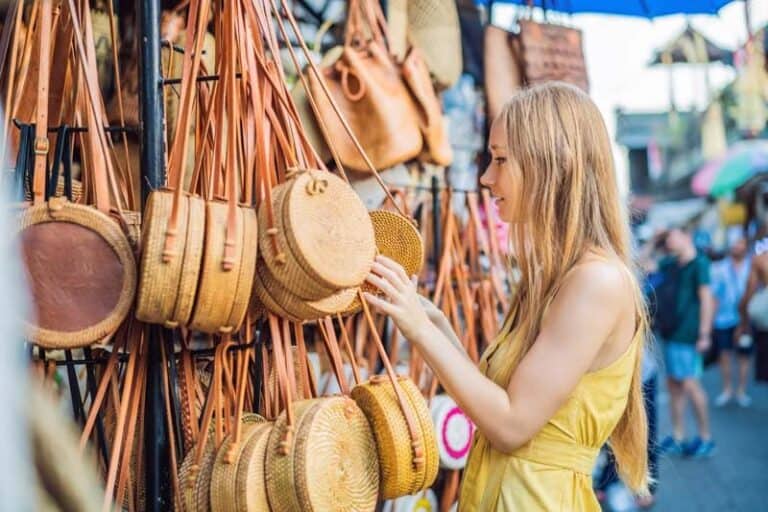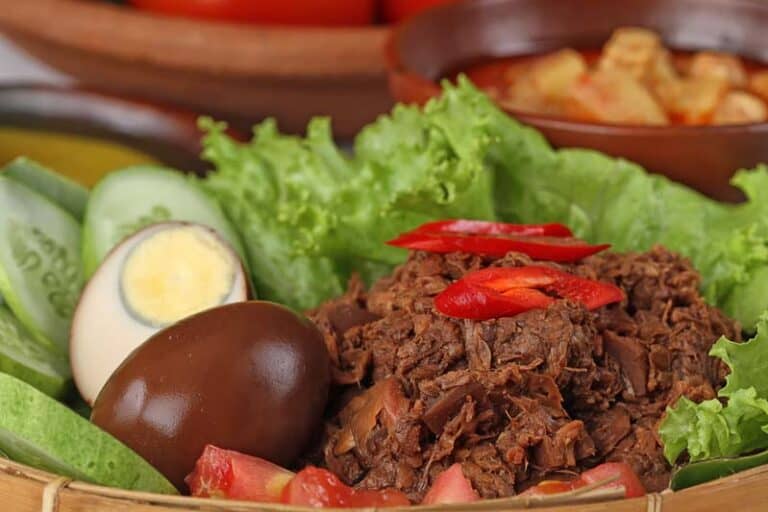Located in North Sulawesi, Manado is a part of the Minahasa region in Indonesia that can be reached by flights from other countries or cities to Sam Ratulangi International Airport. This area is known for its diverse, authentic food, frequently called “Manadonese cuisine” or Manado local food, which has rich spices, extra-hot condiments, Europian-influenced cake and pastry, and exotic or extreme meats. Here are the tempting Manado local food and cuisines you should try when visiting Manado.
Manado sambal (chili paste)
Manado local food cannot be separated from the spices and chili. Therefore, they have many kinds of chili paste – or called “sambal” locally – such as:
- Sambal dabu-dabu, which is a mixture of shallots, tomatoes, limes, and various kinds of chili. It is used for various dipping sauce.
- Sambal roa, a typical Manado chili made from a mixture of chili and smoked roa fish.
Manado seafood
Located close to the sea, seafood is a popular Manado local food, and some of the dishes you can try are:
- Coconut crab, can be cooked in spicy sauce, oyester sauce, or coconut milk sauce – the taste is very similar to the lobster and crab meat.
- Pampis cakalang fufu, which is basically the smoked spicy shredded tuna (floss), usually served with steamed rice or used as a filling for panada, bread with savory fillings.
- Kuah asam (sour soup), a typical soup (usually fish) boiled with tomatoes, tamarind or vinegar, added with some sweet corns, pumpkin, potatoes, carrots, or vegetables.
- Rica ikan roa, the spicy roa fish cooked with spices and chili.
- Grilled gala shrimp
- Grilled spicy grouper
Manado local food (non-seafood)
Besides seafood and sambal, there are more delicious Manado local food you should try, including:
- Tinutuan – a very popular Manado local food – which is porridge rice with mixed vegetables like spinach, water spinach, corn, kale, pumpkin, and cassava. It is best served with salted fish, chili sauce, and crackers.
- Yellow rice usually served with shredded cakalang fish, shredded beef, boiled egg, fried tofu, and some potato and fried onion as the toppings.
- Nasi jaha (Ginger rice), a traditional Manado snack, is basically rice and sticky rice mixed with coconut milk, ginger (jahe, or jaha), lemongrass, kaffir lime, and pandan leaves, then is packed into the bamboo tubes lined with the banana leaves, and grilled over the slow-burning hot charcoal. Sliced nasi jaha is usually served with cakalang fufu.
- Woku belanga is actually the way of cooking the meat inside a pot enriched with various spices like tomato, lemongrass, turmeric leaf, lemon basil, chili pepper, and lemon. Basically, you can use any meats, but the common ones are garoupa fish and chicken.
- Ayam tuturuga, a Manadonese curry-like chicken with strong herbs like Thai basil, kaffir lime, pandan leaves, and grilled turmeric, which makes it even more attractive.
Manado local snacks and desserts
If you are looking for some light snacks from Manado, here are some options to choose:
- Klappertaart, a Manado traditional dessert influenced by Dutch culture. Literally, “klappertaart” means “kue kelapa” (coconut cake) in Indonesian, which is a sweet and savory custard-like cake filled with young coconut flesh. It is made from coconut, walnuts, and raisins, with many variants, such as original, durian, chocolate, cheese, rum raisin, blueberry, etc. Best to be served cold, klappertaart is definitely one of the Manado local food you should try.
- Panada is a Manado favorite snack, which is a bread stuffed with savory fillings, typically with spicy smoked tuna (cakalang) in Manado.
- Gohu is a kind of spicy papaya pickle with vinegar, grounded chili, palm sugar, ginger, and bakasang (fermented fish eggs). It has the fishy aroma with mix of sweet, sour, and piquant tastes.
- Goroho banana, a unique Manado local food which is a deep-fried not-ripe banana served with chili paste like sambal roa or sambal dabu-dabu.
Manado snacks for souvenirs
Besides the Manada local food and cuisines you can enjoy on the spot, you can also get some of this dry snacks home for souvenirs:
- Bagea biscuit, made of walnuts, sago, and cinnamons and best served with coffee or tea.
- Halua Kenari, which is a crunchy snack made from the walnuts mixed with brown sugar. You can easily get it in Manado souvenir shops.
- Pinende Cookies, a typical Manado cookies made from glutinous rice flour, grated coconut, and brown or palm sugar syrup on top – taste is sweet and savory.
- Kukis gelang, or the “bracelet” cookies, are made from flour, egg, coconut milk, peanuts, palm sugar, cinnamon, and salt – it has the fragrant aroma and sweet flavors.
- Pala manis (sweet nutmeg), perfect for those who like the sweets, made from nutmeg and syrup.
Manado local drinks
Manado traditional alcoholic drink is called Saguer Manis, naturally made from palm nectar and a sap extracted from the palms, and once fermented, it becomes palm wine, or known as Saguer Manis in Manado. They are now having the commercial bottle available with the brand of “Cap Tikus”, which contains more than 40% alcohol.
If you are not into alcoholic drinks, you can try Es Sirsak, which is basically a soursop juice, mixed with young coconut, avocado, pearl sago, condensed milk, and ice – such a fresh drink to have during a hot day.
Manado extreme food
North Sulawesi has an unusual cuisine, which could be disturbing for some people outside the region. They consume some extreme and exotic meats, such as dogs, cats, bats, rats, snakes, monkeys, etc. – and you can find these in some of the traditional markets like in Tomohon Beriman Market. You can pick the animals in the market and bring them to the restaurants for cooking.
One of the cuisines is called Paniki, a specialty dish made from bats, cooked in coconut milk, and local spices. Another one is the roasted or grilled mice, which is made from wood rodents that are not contaminated from household wastes and are said to have similar taste with chicken. If you are looking for a dish for dogs, they have Rintek Wuuk, the dog meat served in plenty of spices.
